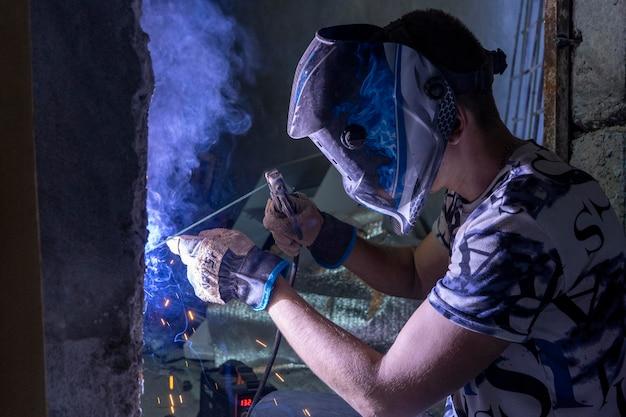If you’ve ever worked with epoxy, you may have wondered about the safety of the fumes. Epoxy is a versatile material commonly used for crafts, woodworking, and even flooring. While it offers many benefits, such as durability and a glossy finish, concerns about its fumes linger. How long are epoxy fumes toxic? And are they harmful to your health?
In this blog post, we’ll delve into these questions and more. We’ll explore the potential risks associated with epoxy fumes and whether they are safe once cured. We’ll also discuss the precautions you should take when working with epoxy, including wearing masks and gloves. So, if you’re considering using epoxy for your next project or simply curious about its effects, keep reading to gain a better understanding of epoxy fumes and how to protect yourself.
How Long Do Epoxy Fumes Last
Epoxy fumes from freshly applied epoxy resin can be quite strong and overwhelming, similar to the smell of strong chemicals. It’s only natural to wonder how long these fumes will linger in your space and when you can finally breathe easy again. Don’t worry, we’ve got you covered with all the information you need!
Understanding the Lifespan of Epoxy Fumes
The duration of epoxy fumes can vary depending on several factors, such as the type of epoxy resin used, the size of the application area, and the ventilation in the space. Generally, epoxy fumes are more potent during the curing process when the resin transforms from a liquid to a solid state. This is when the chemical reactions are at their peak, releasing volatile organic compounds (VOCs) into the air.
The Initial Wave: 24 to 48 Hours
During the first 24 to 48 hours after applying epoxy resin, you can expect the fumes to be at their strongest. This is when you might want to steer clear of the freshly coated area unless you enjoy a pungent fragrance reminiscent of industrial prowess. So, hold off on inviting friends over for a cozy gathering right after epoxy application!
Gradual Dissipation: 2 to 7 Days
As each day passes, the intensity of epoxy fumes starts to decrease gradually. After the initial wave, you may notice a significant improvement in the air quality within 2 to 7 days. Proper ventilation plays a crucial role in expediting this process, so crack open those windows and let the fresh air flow in.
Nearly Odor-Free: 1 to 2 Weeks
After the first week, you’ll likely find that the epoxy fumes have dissipated to a barely noticeable level. The smell, if any, will be minimal and shouldn’t cause any discomfort. Keep in mind that this estimate assumes that the epoxy was applied correctly and in accordance with the manufacturer’s recommendations.
Final Notes on Epoxy Fumes
While epoxy fumes may not be the most pleasant scent to have lingering around, they are generally not harmful to your health in small doses. However, if you have respiratory issues or sensitivities, it’s best to consult a healthcare professional for personalized advice.
Remember, proper ventilation is key to reducing the duration of epoxy fumes. Opening windows, using fans, and implementing air circulation systems can help hasten the dissipation process. It’s always better to err on the side of caution and prioritize your well-being.
So, next time you embark on an epoxy adventure, just remember to factor in a bit of patience and fresh air. Those fumes won’t last forever, and soon enough, you’ll have a beautifully finished project to admire and a space free from any chemical concertos. Happy epoxy-ing!
TL;DR
Epoxy fumes can last from 24 to 48 hours at their strongest, gradually dissipating over 2 to 7 days, with minimal odor persisting for around 1 to 2 weeks. Proper ventilation is vital in reducing the duration of these fumes. Remember that while epoxy fumes are generally not harmful, it’s always best to prioritize your health, especially if you have respiratory issues or sensitivities. So, crack open those windows, let fresh air in, and soon you’ll have a project to admire and a breath of fresh air.
FAQ: How Long Do Epoxy Fumes Last
How long are epoxy fumes toxic
Epoxy fumes can be toxic for varying durations, depending on several factors such as ventilation, temperature, and curing time. In general, the toxicity of epoxy fumes subsides once the curing process is complete and the epoxy resin has fully hardened.
Is epoxy cancerous
No, epoxy resins are not considered to be inherently cancerous. However, certain epoxy products may contain harmful additives or solvents that could pose health risks if not used properly. It is essential to follow safety precautions and use epoxy products in a well-ventilated area.
Is epoxy safe once cured
Yes, epoxy becomes safe once it is fully cured. During the curing process, any toxic components in the epoxy evaporate and dissipate. After the epoxy has hardened, it forms a solid, inert substance that is generally safe to handle and be around.
How long does epoxy resin off gas
The off-gassing duration of epoxy resin can vary depending on factors like the specific product used and environmental conditions. Typically, epoxy resin can continue to off-gas for up to 72 hours after application. However, proper ventilation can help accelerate this process.
Can I use resin in my bedroom
Using resin in a well-ventilated area is highly recommended due to the potential release of fumes. Avoid using resin in enclosed spaces like bedrooms without adequate ventilation, as it can lead to an accumulation of fumes and increase the risk of respiratory issues.
Is epoxy safe to use indoors
When used in a properly ventilated space, epoxy can be used indoors safely. Adequate ventilation helps to disperse any fumes and minimize potential health risks. It is crucial to follow the manufacturer’s instructions and take necessary precautions while working with epoxy indoors.
What happens if you inhale epoxy fumes
Inhaling epoxy fumes can cause various health issues such as respiratory irritation, dizziness, nausea, and headaches. Prolonged exposure or working in poorly-ventilated areas without appropriate protective equipment can intensify these symptoms. It’s important to prioritize safety and minimize inhalation of epoxy fumes.
Are resin fumes harmful
Yes, resin fumes can be harmful if inhaled in excessive amounts or for extended periods. The fumes may cause respiratory irritation, allergic reactions, and other health issues. Proper ventilation and the use of personal protective equipment, such as masks, can help reduce the risk of harm.
Should you wear a mask when using epoxy
Wearing a mask when working with epoxy is highly recommended. A well-fitted respirator mask, specifically designed for organic vapors, can help filter out harmful fumes and protect your respiratory system. Make sure to use a mask rated for epoxy fumes and follow the manufacturer’s instructions.
What are the side effects of using epoxy
Using epoxy without proper precautions can lead to various side effects, including skin irritation, eye irritation, respiratory issues, and allergic reactions. It is essential to wear appropriate protective gear, work in a well-ventilated area, and follow safety guidelines provided by the epoxy product manufacturer.
Is epoxy toxic to humans
Epoxy can be toxic to humans if ingested, inhaled, or if it comes into contact with the skin or eyes. While most epoxy resin products are generally safe when used correctly, it is crucial to take necessary precautions to minimize potential health risks.
What is the safest epoxy for tumblers
When selecting an epoxy for tumblers, look for ones that are specifically labeled as food-safe and non-toxic once cured. These types of epoxy formulations prioritize safety and ensure that no harmful chemicals will leach into the beverages or food.
Do you need to wear a mask when using UV resin
While UV resin generally produces fewer fumes compared to traditional epoxy resin, wearing a mask is still recommended as a precautionary measure. UV resin can still emit some vapor during the curing process, and a mask can help protect against any potential harmful effects.
How do you get rid of epoxy smell in the house
To eliminate the smell of epoxy in your house, you can try the following methods:
- Open windows and doors to improve ventilation.
- Place fans near the affected area to help disperse the odor.
- Use odor-absorbing materials like activated charcoal or baking soda.
- Run air purifiers with activated carbon filters.
- Clean surfaces with a mixture of vinegar and water.
How do you get rid of the smell of epoxy
To eliminate the smell of epoxy, you can take the following steps:
- Remove any uncured epoxy or epoxy waste from the area.
- Ventilate the space by opening doors and windows.
- Use fans to improve air circulation.
- Employ air purifiers or activated carbon filters to absorb the odor.
- Clean surfaces with a mixture of vinegar and water to remove any lingering smells.
What kind of mask should I wear when using epoxy
When working with epoxy, it is recommended to wear a respirator mask with cartridges specifically designed for organic vapors. These masks provide adequate protection against potentially harmful epoxy fumes and help maintain good respiratory health.
What is the safest resin to use
When selecting a safe resin, look for those that are labeled as non-toxic, low VOC (Volatile Organic Compounds), or food-grade when cured. These formulations prioritize safety and minimize potential health risks associated with resin use.
Can epoxy fumes ignite
Epoxy fumes themselves are not flammable. However, some epoxy resin products contain flammable solvents that may release vapors during the curing process. It is crucial to ensure proper ventilation and avoid exposing epoxy resin to open flames or ignition sources.
Is epoxy harmful
Epoxy can be harmful if not used with proper safety precautions. Uncured epoxy can cause skin irritation, eye damage, and respiratory issues if it comes into contact with unprotected areas. Following safety guidelines, using protective equipment, and working in well-ventilated spaces can significantly reduce potential harm.
Can you use epoxy without gloves
It is strongly recommended to use gloves when working with epoxy. Epoxy can potentially irritate the skin, cause allergic reactions, and be difficult to remove once it hardens. Wearing gloves adds a protective barrier, minimizing the risk of skin contact and potential adverse reactions.

